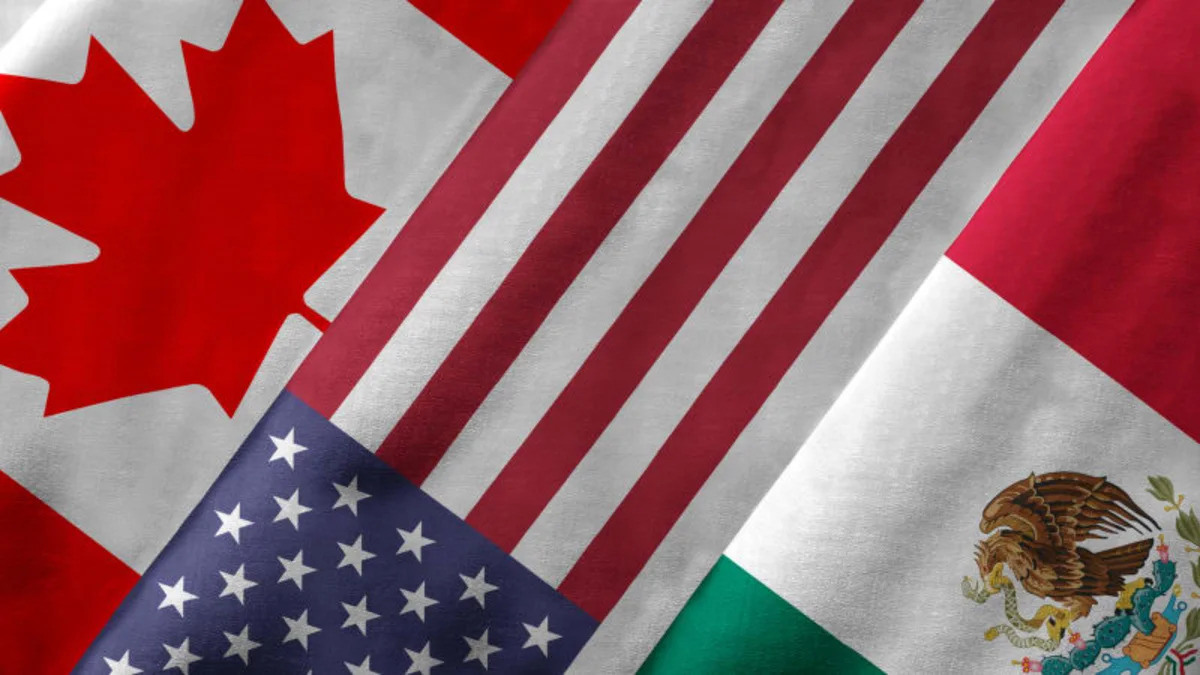WASHINGTON — The United States and Mexico reached a deal on Monday to replace the North American Free Trade Agreement (NAFTA), and talks with Canada were expected to begin immediately in the hopes of reaching a final agreement by Friday, a senior U.S. trade official said.
"We are now inviting the Canadians in as well and hope that we can reach a fair and successful conclusion with them as well," the official told Reuters in an interview.
"There are still issues with Canada, but I think they could be resolved very quickly," the official said.
The U.S.-Mexico deal would require 75 percent of auto content to be made in the United States and Mexico, up from the current level of 62.5 percent. It would also require 40 percent to 45 percent of auto content to be made by workers earning at least $16 per hour, a second official said.
A spokesman for Canadian Foreign Minister Chrystia Freeland said on Monday that Canada is encouraged by the continued optimism shown by its NAFTA partners and will continue to negotiate for a deal, but will only sign a new agreement that is good for Canada,
"Progress between Mexico and the United States is a necessary requirement for any renewed NAFTA agreement. We are in regular contact with our negotiating partners, and we will continue to work toward a modernized NAFTA. We will only sign a new NAFTA that is good for Canada and good for the middle class. Canada's signature is required," spokesman Adam Austen said.
Trump on Monday insisted that it was a two-way deal and it would not be called NAFTA. But Canadian Prime Minister Justin Trudeau spoke to Mexican President Enrique Pena Nieto on Sunday and both agreed to the tri-lateral nature of the NAFTA deal, the prime minister's office said on Monday.
"The leaders discussed the ongoing negotiation of the North American Free Trade Agreement and shared their commitment to reaching a successful conclusion to this agreement for all three parties," the prime minister's office said.
U.S. Trade Representative Robert Lighthizer said the White House is ready to notify the U.S. Congress by Friday of President Donald Trump's intent to sign the bilateral document, but said that it was open to Canada to join the pact.
Facets of the U.S.-Mexico deal:
- It raises the regional automotive content threshold, aka the "rules of origin," for tariff-free access under NAFTA to 75 percent from 62.5 percent, aimed at boosting regional car manufacturing.
- It requires 40 to 45 percent of vehicles value to be made in high wage areas paying $16 an hour, requiring significant automotive production in the United States.
- It requires greater use of U.S. domestic steel, aluminum, glass and plastics.
- Trump backed off on a U.S. demand for a "sunset" clause that would kill the pact unless it was renegotiated every five years. Businesses said that would stymie long-term investment in the region. Canada and Mexico were strictly opposed to the clause. Instead, the United States and Mexico agreed to a 16-year lifespan for NAFTA, with a review every six years that can extend the pact for 16 years more, providing more business certainty.
- Mexico agreed to eliminate the Chapter 19 dispute settlement mechanism, Lighthizer said. Canada is opposed to the elimination of the dispute settlement mechanism.
- A settlement system for disputes between investors and states was scaled back, now only for expropriation, favoritism for local firms and state-dominated sectors such as oil, power and infrastructure.
- The new deal will keep tariffs on agricultural products traded between the United States and Mexico at zero and addresses agricultural biotechnology to support innovations in agriculture.
- It contains enforceable labor provisions that require Mexico to adhere to International Labor Organization labor rights standards in an effort to drive Mexican wages higher.
Canada, which sat out the last leg of discussions while the United States and Mexico ironed out their bilateral differences, is now pressured to agree to the new terms on auto trade and other issues to remain part of the three-nation pact.
Trump's complaints
Trump threatened to put tariffs on Canadian-made cars if a three-way deal could not be reached.
Trump criticized NAFTA throughout the year-long negotiation, saying it had drained U.S. manufacturing jobs to Mexico and calling it "the worst trade deal ever made."
He has often threatened to cancel the 1994 pact signed by the United States, Mexico and Canada, if he could not rework it to the benefit of American interests.
NAFTA talks have hit many speed bumps along the way, including when the United States imposed tariffs of 25 percent on imported steel and 10 percent on aluminum in March, citing national security grounds.
NAFTA underpins $1.2 trillion in annual trade between the three countries.
The United States and Mexico do $550 billion in annual trade, and about 16 percent of U.S. goods exports go to its southern neighbor. However, the Mexican economy relies more on trade than does the U.S. economy, with about 80 percent of its exports sold to the United States.
The United States accounts for 75 percent of goods exports from Canada, where firms flourish operating next to the world's largest economy.
Reporting by Roberta Rampton and Jeff Mason


Sign in to post
Please sign in to leave a comment.
Continue